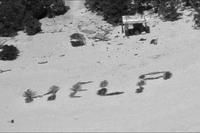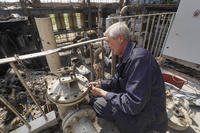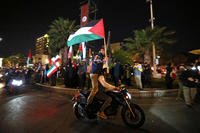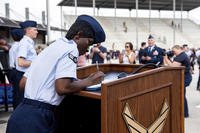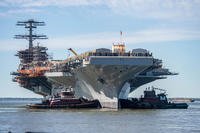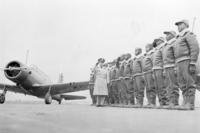Russia kicked off huge air, sea and land military exercises on NATO's flanks Thursday that Russian generals said were not invasion rehearsals as feared by the West.
Gen. Valery Gerasimov, chief of Russia's General Staff, told Army Gen. Curtis M. Scaparrotti, NATO's Supreme Commander and commander of U.S. European Command, that the war games called Zapad (West) 2017 were purely defensive in nature, Russia's RIA news agency reported.
"I can calm our dear neighbors straightaway," Russian Deputy Defense Minister Lt. Gen. Alexander Fomin told the Deutsche Welle German news agency in an interview.
"Certainly not -- I can assure you there are no plans for any sort of invasion into the territory of neighboring countries," Zomin said of the Zapad (West) 2017 war games in Russia and Belarus near the borders of the Baltic States, Poland and Ukraine.
The "West" designator for the joint exercises with Belarus should not be seen as threatening to NATO states, Zomin said.
"In this case, the 'West' isn't to be taken in the broad, political sense of the geographic term as the countries of the West, or the European Union or the members of NATO," Zomin said.
Zomin also denied charges by Western officials that upwards of 100,000 troops would be involved in Zapad 2017 scheduled to run from Sept. 14-20.
"There certainly aren't 100,000 troops taking part. All in all, around 12,700 people will take part in the exercises," Zomin said. More than 12,700 troops would require the presence of NATO observers under international agreements.
The exercises are scheduled for land and sea training areas in Russia, Belarus, the Baltic Sea and the Russian exclave of Kaliningrad.
In a statement, the Russian Defense Ministry said that the exercises will involve about 12,700 service members, about 70 warplanes and helicopters, up to 680 units of military hardware, including about 250 tanks, up to 200 artillery pieces and multiple missile launchers, and 10 warships.
Russian Defense Minister Sergei Shoigu said the exercises will be "the biggest army training event in the current year."
The drills will give Russian and Belarusian troops "an opportunity to train their skills in planning military events and managing troops based on the experience received during modern armed conflicts," the Russian Defense Ministry said.
The Zapad exercises have rattled the NATO member Baltic states, which were once occupied by the former Soviet Union. Lithuanian Defense Minister Raimundas Karoblis told Reuters that "We can't be totally calm. There is a large foreign army massed next to Lithuanian territory."
The Zapad exercises have raised concerns among NATO member states since Russia first gave notice in the spring that they would take place.
In a visit to the Baltic states in May, Defense Secretary Jim Mattis said he had no immediate concerns about Russia conducting exercises on NATO's borders so long as "it stays routine," but "any buildup like that is simply destabilizing."
-- Richard Sisk can be reached at Richard.Sisk@Military.com.


